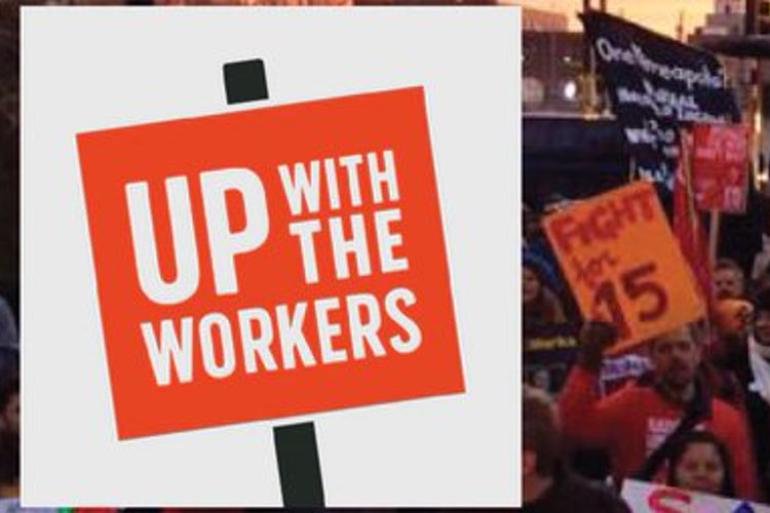What We Offer
Labor Education Service provides workers and union leaders with a range of programs and courses that are designed to equip them with the necessary skills, expertise, and connections to create more just workplaces. We publish labor news and provide other educational opportunities on many relevant issues, such as leadership, negotiation, labor law, labor history, and social justice organizing. Additionally, our resources allow you to delve into the rich history of labor in Minnesota, from the beginnings of unions to significant strikes and legislative milestones.
Explore more:
Trainings & Classes Workday Magazine Resources & Materials
Through six in-depth sessions scheduled over eight months (October - May), participants study working people's movements—past, present, and future—while learning together how workers succeed in building a more just and equitable society. Emerging and established worker activists build relationships and network with their fellow cohort members as well as others from the labor movement and other social movements. The brochure and application form for the 2024-2025 cohort are now available!
Short-term classes on a variety of topics related to labor unions, including collective bargaining, labor law, labor history, and organizing.
Cost: $50 for union-sponsored participants; $25 for participants without union support; free to anyone who cannot afford to pay. Registration is required for these (mostly) virtual classes.
LES offers customized training to groups, union locals, councils, and districts on various subjects. Our training is tailored to your specific needs and goals, and can be delivered in multiple formats, including workshops, seminars, and online courses.
Some of the topics we offer customized training on include:
- Leadership development
- Organizing and mobilization
- Collective bargaining
- Labor law
- Steward training
- Workplace safety and health
- Diversity and inclusion
- Social justice
- Communication and conflict resolution
- Strategic planning
- Campaign development
We can also provide training on specific topics related to your industry or sector.
Our training is delivered by experienced and knowledgeable professionals who are experts in the labor movement. We use various teaching methods, including lectures, discussions, role-playing exercises, and case studies. We also draw on the latest research and best practices to provide our participants with the information and skills they need to be successful.
If you want customized training for your group, union local, council, or district, please get in touch with us today. We would happily discuss your needs and develop a training program that meets your goals.
Examples of Customized Programming
The Labor Education Service has conducted various training programs in the Twin Cities Metro Area and Greater Minnesota. Below are some examples:
- Week-long Leadership Programs with the United Steel Workers District 11, and the National Association of Letter Carriers, Region 7.
- Weekend two-day Steward Training programs with the Office & Professional Employees International Union Local 12 and weekday two-day Steward Training programs with the Minnesota Association of Professional Employees.
- Weekday one-day Steward Training programs with the American Federation of Government Employees, Locals 1969 and 3669 and weekend one-day training programs with the United Food & Commercial Workers Local 789.
- One-half day Grievance Training program with the Amalgamated Transit Union Local 1005.
- Weekday evening Membership Leadership Training program with the International Union of Operating Engineers Local 49.
- Five monthly all-day Executive Board Trainings with the Amalgamated Transit Union Local 1005.
Workday Magazine
Workday Magazine began as Workday Minnesota, an award-winning website launched in 2000.
In the fall of 2022, we made a shift to expand our coverage to include labor issues in other Midwest states, where there are significant exploitation and organizing efforts that warrant more extensive reporting. Rest assured, our commitment to covering the labor movement in Minnesota remains unwavering!
With this change, we're excited to introduce our Workday team:
- Sarah Lazare, Editor: With a decade of experience in journalism, Sarah joins us from In These Times, where she served as both an editor and a reporter.
- Isabela Escalona, Senior Associate Editor: Isabela holds a B.A. in International Studies from Macalester College in St. Paul.
- Amie Stager, Associate Editor: Amie earned her B.A. in journalism from the University of Minnesota Hubbard School for Journalism and Mass Communication.
For more details, you can delve into Amie Stager's piece in "Up With the Workers."
Up with the Workers Substack
Up With the Workers, established in 2022 on Substack, is a platform for Minnesota's labor movement. Founded by journalists and activists, it amplifies worker stories and fosters solidarity. The publication tackles diverse labor-related topics, from union activities and strikes to labor policies, industry conditions, and societal influences. Interviews with workers, union leaders, and experts are featured. Their mission is to provide accurate, informative coverage, ensuring underrepresented workers find their voice in the media.
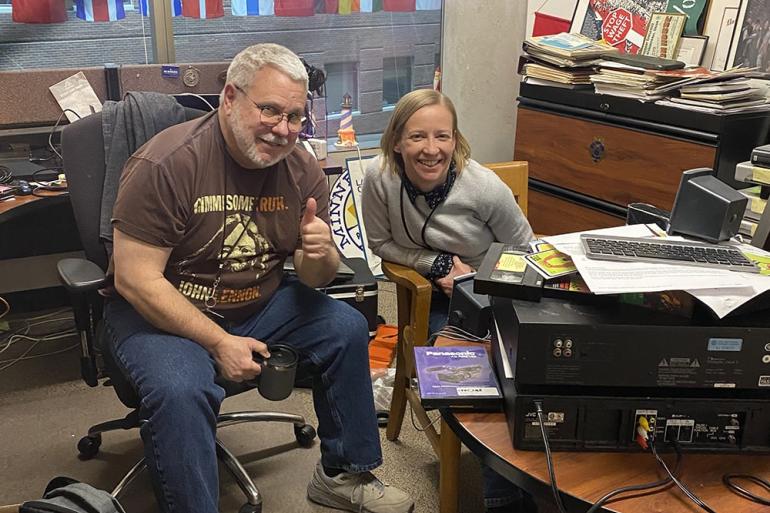
Countless hours and people power have been, and will continue to be, spent on archiving and digitizing over three decades of Minnesota labor stories and organizing - a portion of which is now easily accessible at the University’s Digital Content Library. And much more coming! Special thanks and recognition go to our past colleagues John See, Howard Kling, Randy Croce, Sondra Menzies, and Emy O'Hara - and our partners at MN Media Arts - for preserving and sharing this rich history.
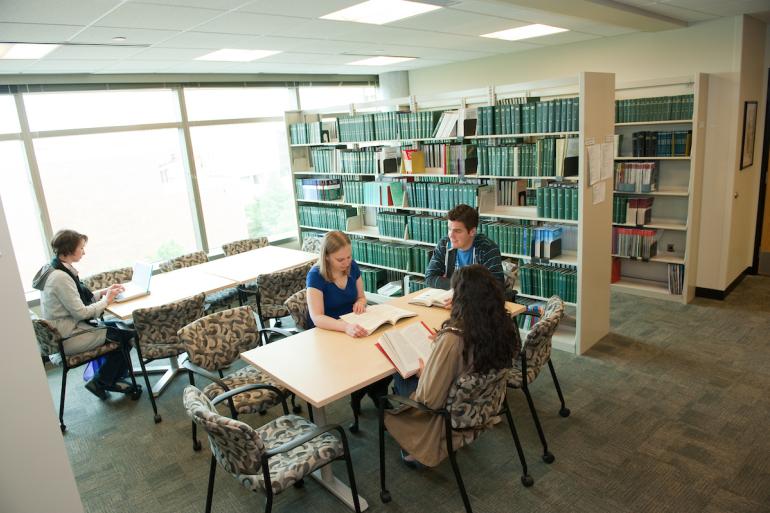
Explore the University of Minnesota's Labor Film Lending Library, now open to the public! In collaboration with the Herman Library, the Labor Education Service offers a range of labor-related films, from classics like "Matewan" to recent explorations of the global economy. Students, staff, faculty, and the general public can check out these films, which may prove valuable for classes or personal viewing. Access the collection through the Herman Library catalog. The library is situated on the 3rd floor of the Carlson School of Management.
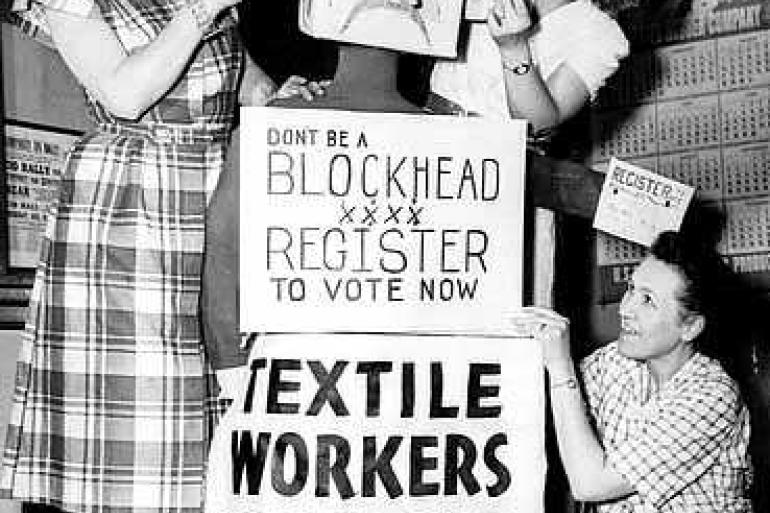
Since statehood, Minnesota workers have joined together to improve and protect their livelihoods, rights, and voices in the workplace. Labor organizations, especially unions, have stood up for members’ interests with employers. Randy Croce, LES emeritus, created this comprehensive resource called "Labor and Labor Organizing in Minnesota" for MNopedia.
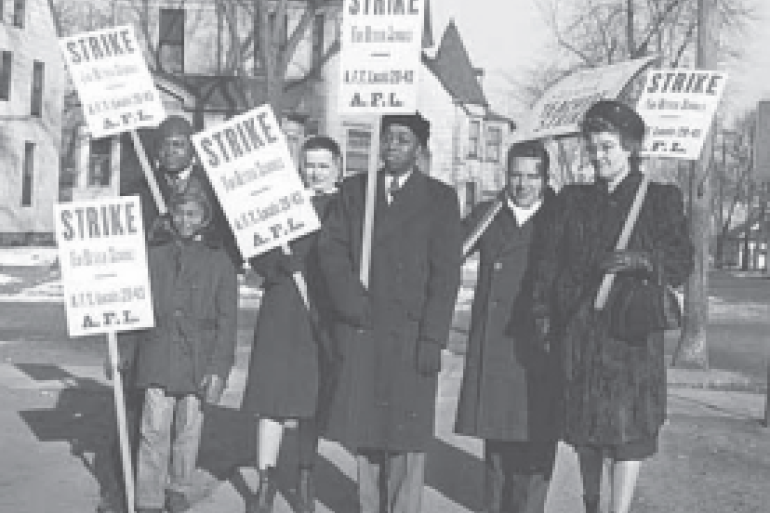
Barb Kucera, former LES staff, started a timeline of Minnesota workers and their organizations, dating back to the early 1800s. The timeline highlights key events in the development of the labor movement in Minnesota, including the formation of unions, strikes, and legislation that has impacted workers' rights.
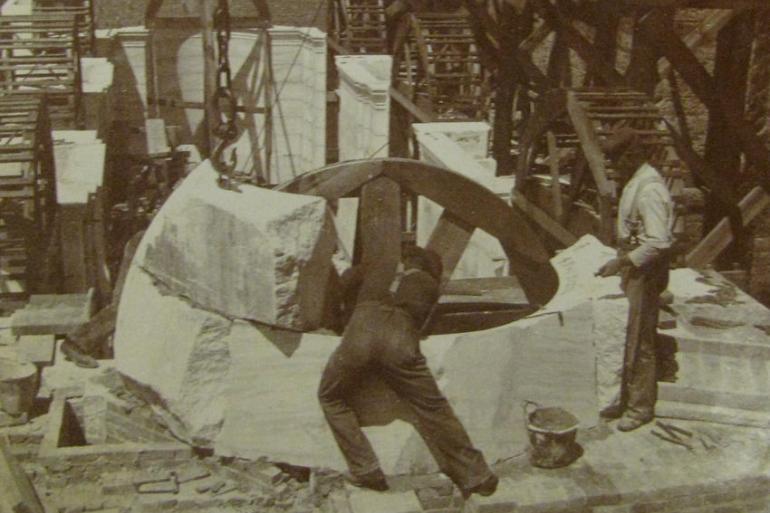
A project of the Labor Education Service at the University of Minnesota. For five years, Randy Croce (LES), Dave Riehle, John Sielaff, and Victoria Woodcock researched the workers and contractors involved in the Capitol construction from 1896-1907. "Who Built Our Capitol?" reached a major milestone with the launch of a 46-minute video documentary, website, and a Facebook page.
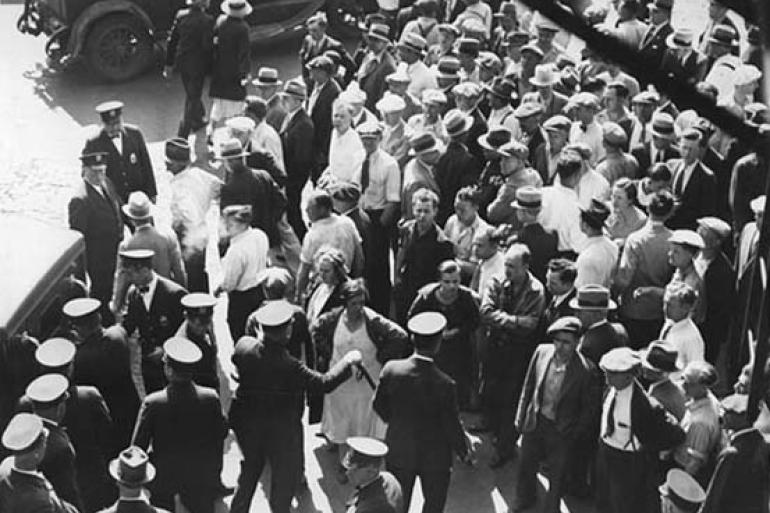
The site is designed to be used with the included video "Minneapolis Truckers Make History" which is based on the film "Labor's Turning Point: Minneapolis Truck Strikes of 1934". Workers from a variety of industries united in solidarity to strike for better pay and working conditions. The strike marked a turning point in the labor movement and led to the passage of important labor laws.
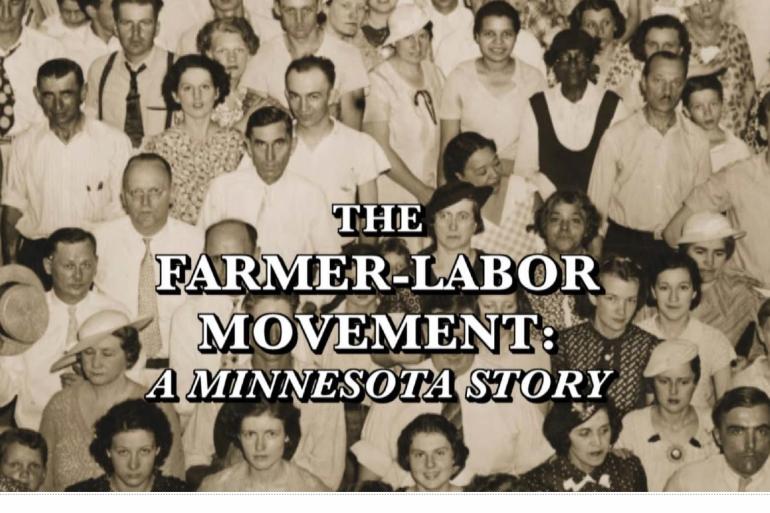
The Farmer-Labor movement founded the most successful third party in U.S. political history. This progressive movement elected candidates and advanced political change in Minnesota from 1917 until it merged with the Democrats in 1944, to form the DFL, the Democratic-Farmer-Labor Party.This documentary, created by the Farmer-Labor Education Committee, portrays this history through the voices of Farmer-Labor leaders and their descendants, as well as contemporary historians and activists.
